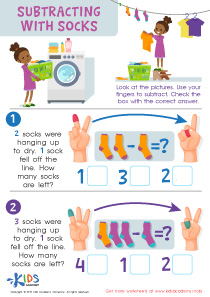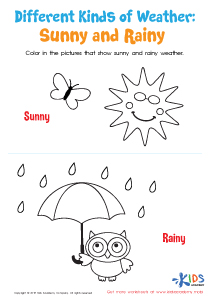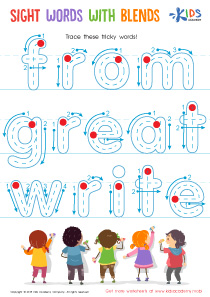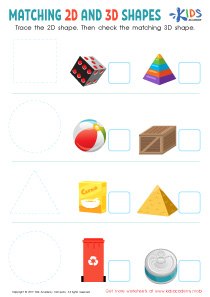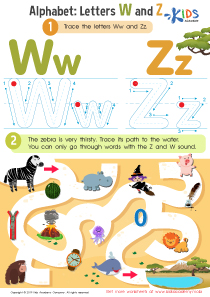Easy Addition Story Problems (#'s 1-5) Quizzes for 3-Year-Olds
2 results
2 filtered results
Clear all filters2 filtered results
-
From - To
Dive into the delightful world of numbers with our "Easy Addition Story Problems (#'s 1-5) for 3-Year-Olds." These engaging and interactive quizzes are perfectly crafted for little learners, making their first steps into the realm of addition. Through charming story problems that capture their imagination, children will explore the basics of adding numbers 1 through 5. Each quiz is designed to check knowledge gently and provides immediate feedback to encourage and guide young minds. With our easy-to-navigate quizzes, watch your 3-year-olds embrace math with enthusiasm and build a strong foundation in addition story problems.
Understanding the basics of mathematics is crucial in the early stages of learning, and what better way to introduce young minds to this essential skill than through Easy Addition Story Problems (#'s 1-5) for 3-Year-Olds? These interactive quizzes are specifically designed to cater to the learning needs of toddlers, making them an exceptional tool in the foundational phase of their education.
At the age of three, children are at a developmental stage where they begin to understand the concept of numbers and are eager to explore their surroundings. This curiosity makes it the perfect time to introduce basic mathematical concepts. Easy Addition Story Problems (#'s 1-5) for 3-Year-Olds are designed to tap into this natural curiosity by presenting addition in the form of engaging and relatable stories.
These story problems are not just numbers on a page; they are interactive experiences that draw children into scenarios where they can apply addition in real-life contexts. For instance, a story problem might involve counting apples in a basket or adding the number of pets in a home. This method helps bridge the gap between abstract concepts and tangible understanding, making it easier for toddlers to grasp the notion of adding numbers.
One of the key benefits of these Easy Addition Story Problems is their ability to foster problem-solving skills. As children listen to or read the stories, they are encouraged to visualize the scenarios and work through the addition problems to find solutions. This process not only enhances their mathematical skills but also develops critical thinking and comprehension abilities.
Moreover, the interactive nature of these quizzes ensures that learning is fun and engaging. Interactive elements, such as clickable answers or drag-and-drop features, keep children interested and motivated to learn. This interactive approach is known to improve concentration and memory retention, making it an effective learning tool for young children.
The simplicity of the Easy Addition Story Problems (#'s 1-5) for 3-Year-Olds is another aspect that makes them particularly beneficial. By focusing on numbers 1 through 5, the quizzes ensure that the concepts are not overwhelming for toddlers. This gradual introduction to addition allows children to build confidence in their mathematical abilities, laying a solid foundation for more complex concepts in the future.
Furthermore, these quizzes can be a valuable resource for parents and educators seeking to support their children's learning journey. They provide a structured way to introduce mathematical concepts, monitor progress, and identify areas where a child may need further assistance. Given their digital format, these quizzes are easily accessible, making it convenient for children to practice addition story problems anytime and anywhere.
In conclusion, Easy Addition Story Problems (#'s 1-5) for 3-Year-Olds are an indispensable tool in the educational arsenal for young learners. By combining interactive storytelling with basic addition, these quizzes make learning mathematics an enjoyable and fruitful experience. They not only help children understand and apply mathematical concepts but also encourage a love for learning that can last a lifetime.

